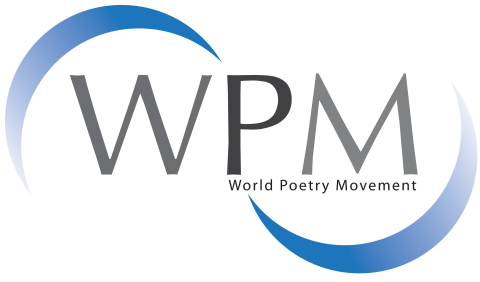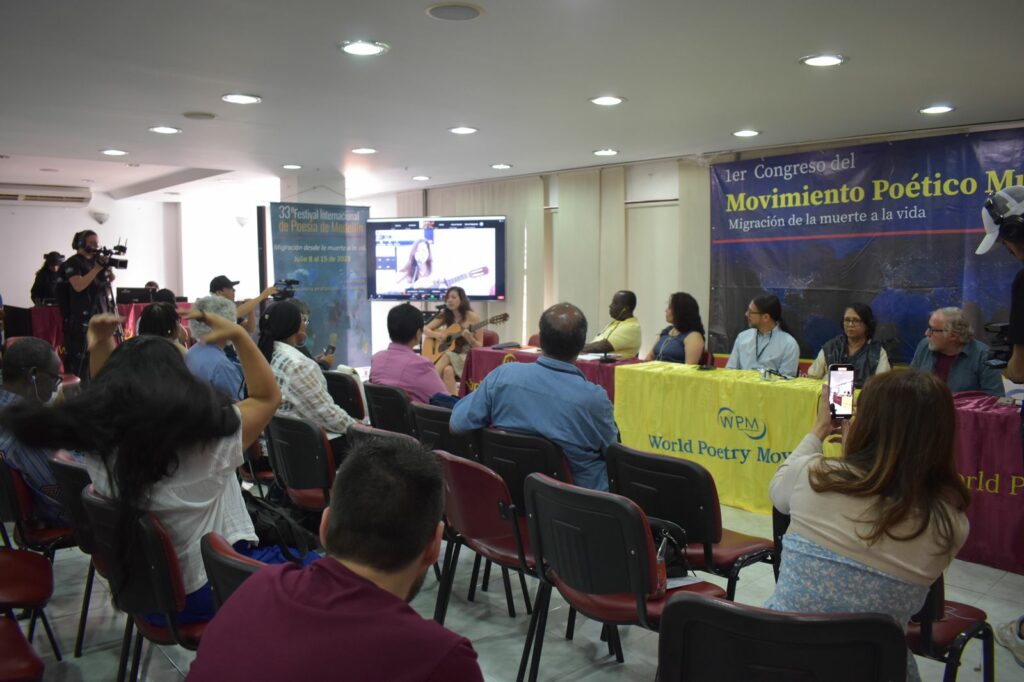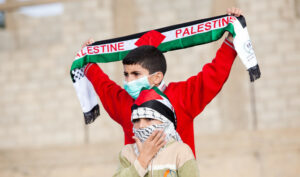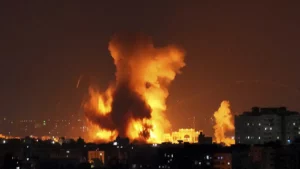Carried out by: Mónica Lucía Suárez (WPM Colombia) and Melissa Merlo (WPM Honduras).
Time: 2:00 pm to 4:00 pm
Sándor Halmosi (Hungary)
Poetry always has more knowledge, it is not about explaining, the human is involved in feelings to live more comfortably, protect values, enrich spirits, that makes you comfortable, lose individuality, only poetry allows us to speak to ourselves, communities cannot lose their union with the spirit. Society without poetry does not exist. We have no time left and that is the big mistake of all, if we don’t do our homework now, handle the basics, work for our poetic life we will not survive, as long as poetry is alive in the body there is hope. It keeps us awake, that’s what it’s all about. The poem doesn’t let us go.
Maribel Mora Curriao (Nación Mapuche, Chile)
Although we speak in different languages, everyone can hear each other in their own language, it is like a tower of Babel. You have been invited to this event to share your word, the ancestral word remains. Rethinking civilization or thinking another way of living is relevant for us. Defense of human rights to sustain our cultures as nations and peoples, lead us to think how this anti-rights discourse is against recognizing diversity, that difference is what enriches us, we are part of nature, we are not something different or far from it. There are nations without a State, peoples that are still alive. We keep those traditions alive. We preexist those nations. Regarding poetry, you have transcended as Mapuches because of the possibility of being a community, being recognized poets in different parts of the world. It is read in different parts of the world. Beyond all the pressures they have managed to transcend, families, grandparents, children and young people. They go to the poetry readings as a family, they get to know each other and have managed to spread Mapuche poetry. It invites to be a community with everyone.
Oumar Farouk Sesay (Sierra Leona)
The world is changing with information technologies. Every day there are new ideas. Even our language is changing. WPM should put the vanguard of language as a pillar, not to go back to the arbitrary origin we came from. Language formation says that all words started with a poem and that is why poetry is meaningful, we define poetry, songs, communication. Use poetry to humanize discussions. Politicians become a pain in poetry, they don’t always look for solutions. Ideologies divide the world, they censor, the dictatorships of customs that come against poets.
Liliana Marentes (Colombia)
It is an honor to be here with the leaders of the world, the beings who leave their seed. Poetry is the way to leave love to the world. It is important to continue with the pedagogical work through poetry, to contribute through empathy, care for the other. This Congress can change the world, a more humane one that includes native peoples, marginalized populations. It is important to have points of convergence. The world needs this movement to inhabit it poetically, an act of kindness for the whole world.
Khalid Raissouni (Morocco)
The Asian and African groups have felt nowhere, they have cultural homogeneity and a language link that is handled in the group. The friends of WPM Algeria and Morocco have given a report that they do not see reflected in the one presented from WPM Africa. This report does not represent what they have done. Multicuturality is not seen. You have felt alienated when you do not speak English, and that will be felt by many. In Morocco they passed a report and it is not reflected in the report, it needs to be resolved. This dimension of language homogeneity as the one that represents them in their Arab group.
Fernando Rendón (Colombia)
He clarified that his team is not responsible for the report of Asia or Africa, but corresponds to the leaders of that continent and that region. He did not receive a report from the Arab poets as they were not included in the Africa report, and no translator was required as most of them speak more languages, there is permanent translation into French, English and Spanish.
Ayo Ayoola- Amale (Ghana)
She says she did not receive the report, will search and adjust its contents.
Agneta Falk (Sweden)
She expresses her reflections: everyone has given their report and poetry has been transformed through WPM. Each intervention has contributed ideas for improvement, to take back to their community. It is a dormant tree, like the symbol of the movement, its leaves, roots and branches, being one.
Imdad Aakash (Pakistan)
Any poem without a political state is not good. Militarization all over the world can be done, what if they didn’t exist, we have the forces to go against the world with art, resist the killings, the deaths of people, from the school of poetry. Nuclear weapons are the greatest threat to the human race. Nuclear energy should be used for health, tourism, we should write poetry about marginalized people, women, about empowerment and their rights that they are the real mothers of humanity, superior to men.
Bárbara Pogacnick (Slovenia)
Poets in their state were heroes, stronger than rock stars. Poets are now marginalized. Poetry invents languages because in the subconscious, the inconceivable, something we cannot explain and yet it is intrinsic in language. We are all connected, poetry and language push and pull away from us. The language of biodiversity is like human civilization, it pushes human beings to their natural essence. In the same way languages are disappearing, then there is a global problem of poetry to connect. To be controlled by AI, the power of democratization. That’s the way the geniuses of the world are going to appropriate our content and deprive us of it. It’s good to come together and share. It’s important to be in presence.
Shirani Rajapakse (Sri Lanka)
Two comments on the Strategic Plan. In the most important values talk about freedom of expression. Tolerance of religions and beliefs. This cannot be a justification.
The Strategic Plan for five years, suggests for two years. Time passes quickly and it is better to review it every two years. Will it be an operational plan?
Melissa Merlo (Honduras)
WPM promotes cultural diversity, linguistic diversity, care of the planet, each of the 18 departments has leaders to give continuity to the activities for the population in the community. Workshops for teachers, students, contests, with foundations, literary workshops, social commitment. Supported by the Minister of Culture, this is the second time that a book fair is held. Corruption is a scourge and the president supports and generates change, development of critical thinking, presence in the universities with the academies, we need to know the needs. Against feminicides, defense of the most vulnerable, a country where a woman dies every 18 hours. Strengthen the weaknesses so that poetry is not subject to discrimination, have global coverage, agreement, agreements, manage with universities, create ties of brotherhood with the media, national coverage. Creation of friends of the WPM, integrate different representatives to contribute to the repressed, reach the remote places and for this purpose seek allies to generate resources.
Francis Combes (France)
Internal organization of the movement. That it be horizontal. Exchanges, discussions, that do not have the same language. To develop our movement in places and countries. To take into account the particular realities of each region, that everyone does something for poetry, the school of poetry. A world without walls, a campaign, a theme, our home. To leave with a very precise idea to unify efforts against war, violence, militarization of the world, against discrimination, indifference to the oppressed, we are the people of the world to unite the peoples of the world, to recognize diversity.
Vadim Terekhin (Russia)
We have the same objective of what we must do, the question is how we are going to achieve it, it depends on each one of us. Each one of us has a specific task to accomplish, it can be big or small. Each one must carry that task well, we all agree on the essentials. To look for the incentives of poetry. To create our own world-renowned award. Each of the poets can know that they can receive the award, translate our poems and works. Look for ways to spread in our countries. We are representatives of 50 countries, spread the work and take the technology to spread poetry among young people.
Gerry Loose (Scotland)
Thank you for being part of this movement. More important are actions and talking about what poetry can do. It is much better to listen than to talk, we all speak from the same place of what we could do. We are one species with living beings. Embrace orality.
Make those languages germinate, in the country of Scotland there are several languages. It is very important to embrace the word: symbiosis.
One word can change the way we think and be. To move forward in our practices as poets.
Fernando Rendón (Colombia)
To close the event, he proposed that Achour Fenni (Algeria) speak. An Arabic translator was arranged for the rest of the Congress in Caracas.
Achour Fenni (Algeria)
We are here for the peace of the world, but to make peace we have to think about the reasons for war. We are victims of linguistic hegemonies. WPM can break down these barriers.





